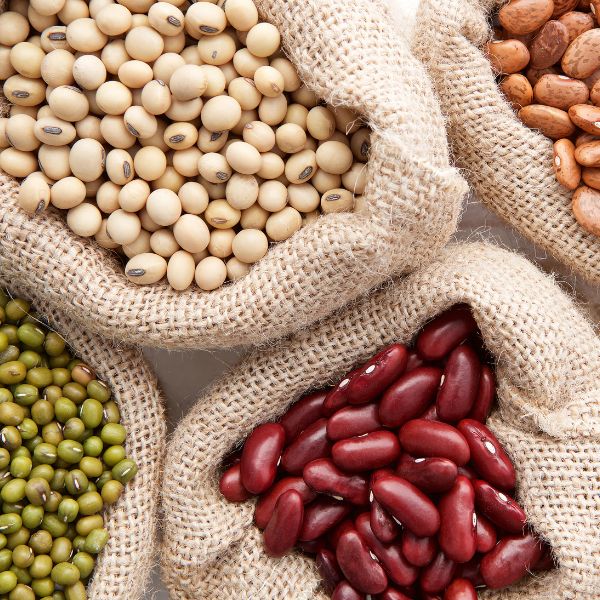 Vegans and vegetarians are often met with the question: “How will you get enough protein?” Two myths persist around protein: one, that meat is the superior source and two, that vegetarian and vegan diets are low in nutrients.
Vegans and vegetarians are often met with the question: “How will you get enough protein?” Two myths persist around protein: one, that meat is the superior source and two, that vegetarian and vegan diets are low in nutrients.
Yet those following either of these diet lower their cholesterol levels, fat intake, diabetes and heart disease risks. Vegetarians and vegans often consume more vitamins and have lower average body weights.
Understanding Protein
For vegetarians and vegans, concerns surrounding protein intersect with other nutritional deficiencies, including iron, calcium, vitamin D, vitamin B12, zinc and omega-3 fatty acids. Commonly sourced from meat and animal byproducts, these nutrients assist with building strong bones, increasing red blood cell count and supporting brain, heart and immune system health.
From a holistic health perspective, protein helps to support and build your skin, muscles, bones, organs, immune system and metabolism. Forming collagen, keratin and elastin, amino acids fuel these processes and often help your body repair itself. To assist with these functions, your body breaks proteins down into amino acids. Complete proteins offer all nine essential amino acids.
Vegetarians and vegans often have to pair proteins to get these benefits or take an amino acid supplement and need to be aware of each food’s protein content to avoid a deficiency. Consider 0.75 grams for every kilogram of body weight, then convert this amount to pounds. An adult who is 135 pounds requires a minimum of 45 grams of protein, regardless of the source.
Those following one of these diets are advised to consume 10 to 35 percent of your calories through protein sources. To make sure you’re getting all essential amino acids:
- Consume a grain-based protein with a plant-based one. Think rice and beans, soy protein, soy milk and oats.
- Take a vegan amino acid supplement or protein powder at least once a day. Make sure the formula includes leucine.
- On-the-go, consider bringing a protein bar to add about 20 grams from complete amino acids, as well as grains.
Vegetarian and Vegan-Friendly Sources of Protein
As you plan out your meals or peruse a restaurant menu, consider getting protein from:
- Legumes: Per serving, legumes, beans, lentils, chickpeas, peanuts, cashews, tofu, tempeh and related foods offer a significant amount of protein. This source averages about 20 grams per serving. Combining legumes with a whole grain can also give you all essential amino acids.
- Grains: Two-fold benefits include protein plus fiber content for unrefined sources. Based on type, protein content ranges from just under 8 grams for a 100-gram serving of white or brown rice to nearly 15 grams per serving for wild rice.
- Nuts and Seeds: Sunflower seeds, hazelnuts, cashews, almonds and byproducts like hummus and tahini deliver a similar profile as grains: a sizeable source of protein and a source of fiber. Incorporate these sources into a meal, such as on a salad or in a stir fry, or have a handful as a snack.
- Vegetables and Fruits: Vegetables and fruits provide a secondary source of protein but should not be your primary source. While they add vitamins, minerals and antioxidants to your diet, vegetables and fruits can offer 3 to 7 grams of protein per serving.
Explore all the possibilities of vegan and vegetarian dining at Colony Diner! Check out our vegan menu before dining in or placing an order to-go.






